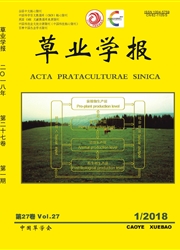

 中文摘要:
中文摘要:
进入21世纪的人类所面临的最主要挑战之一是粮食短缺与品质改良。中国是农业大国,形势更加严峻。小麦是我国第二大主要作物,其产量与品质直接关系到国计民生。随着全球气候变暖,制约小麦产量的环境因素更加复杂。其中小麦抗旱生理生化与分子生物学研究将为解决上述问题提供有力的理论支撑。随着水稻、玉米基因组序列的完成与启动,这方面的作用将更加显著。本研究结合已有工作,论述小麦抗旱生理生化和分子生物学及生物技术研究进展与趋势。
 英文摘要:
英文摘要:
During the 21st century, one of the greatest challenges facing human beings is a deficit of grain and its quality improvement. China is a big agricultural country, and this is a serious situation. Triticum aestivum is the second most important crop in China and its production and quality are directly linked with both international and domestic affairs. The effects of global climate change on environmental factors limiting T. aestivum production and quality are complicated and the study of anti-drought physiology, biochemistry, and molecular biology of T. aestivum will play an important role in providing powerful theoretical guidelines for coping with this problem. With the completion and initiation of Oryza sativa and Zea mays genome sequencing respectively, such functions will be more obvious. Combined with previous work, this paper reviews the progress and developing trends in research on T. aestivum drought resistance, physiology, and biochemistry, and molecular biology and biotechnology.
 同期刊论文项目
同期刊论文项目
 同项目期刊论文
同项目期刊论文
 期刊信息
期刊信息
